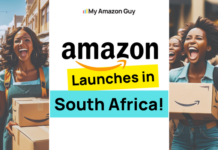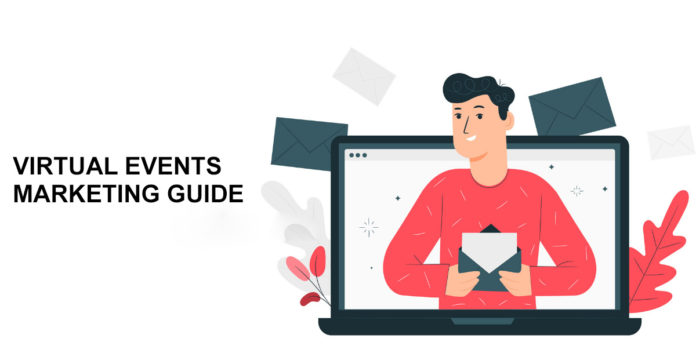Delivering an immersive virtual event requires planning, effort, time, and an out-of-the-box approach. With the twists and turns of events in 2020, brands and organizations adapted virtual events technology sooner than we realize. One health crisis, and here we are hosting virtual events in full-swing.
Digital innovations by tech enthusiasts are evolving at an unprecedented speed. However, it motivates organizations and brands to transform their live physical events completely into the virtual event format.
Every other day, we see at least one post promoting a virtual event on social channels, newspapers, or guest blogging sites. Experts are sharing the most promising tips for winning at virtual events in 2021. A shift in the event patterns has resulted in attracting brands and organizations with its great perks. Undeniably, the future lies within the virtual hybrid events. As the demand for virtual events has surged, a handful of virtual event technology providers are available in the market.
Attracting the relevant set of audience and selecting the right virtual event technology is the key to host successful virtual events. However, if you manage to organise an event full of information and engaging activities, but haven’t figured out how to promote your virtual event, it will not serve any purpose. Right virtual event marketing promotion is parallel to win half the battle as it attracts the right set of attendees. It helps in making your potential target audience aware of your upcoming event. Building an effective virtual event marketing strategy to promote your virtual event helps in achieving maximized attendance, leads & revenues for business metrics.
In this article, we have enumerated tips to build an effective virtual event marketing plan to promote your virtual event. Want your next online event to stand out? Here is a marketing guide to help you out!
Virtual Events Marketing Guide to promote your next Online Event
#1. Determine Your Audience
Identify your audience whom you want to target. Before creating a virtual event marketing plan, understanding your audience is vital to deliver memorable virtual event experiences. The better you understand your audience, the more effective the marketing plan you will build. Have a thorough understanding of your audience right from what they like, what are their interests, what motivates them, and more. Additionally, try to have knowledge about their:
● Age
● Location
● Profession
● Most preferred online channels
● Goals and objectives
If you are planning to host a virtual conference or webinar, research on the topic that holds the interest of maximum attendees. Holding a conference on a topic that holds the interest of only 10% of attendees is not a good idea. The same goes for a virtual exhibition, identify what your buyer likes. Build a strategy around it to encourage them to buy from your virtual exhibition booth. Once you identify your audience building a virtual event marketing strategy becomes easy thus resulting in desired outcomes.
#2. Have a clear outlook about what attendees can see
To promote your virtual event effectively, set expectations around what the event holds. This promotion tactic does wonder while marketing in-person events. Why not try hands-on promoting virtual events the same way! The audience is always eager to know what the event holds for them. Curate a list of the activities that attendees can perform and see during the event:
● Can attendees attend ongoing live sessions the same way as in-person sessions?
● Will attendees be able to ask live questions?
● Can attendees have access to all the sessions or particular sessions are restricted to registered attendees?
● Do you want to display some behind the scene action to give it an in-person touch?
● Are there any games for attendee engagement? And more.
Once you are clear about what you want your attendees to see, building a virtual event marketing plan becomes coherent.
#3. Create an event landing page or a microsite
Word of mouth is the most common practice to spread information about the upcoming event. But, if attendees want to seek accurate information about the virtual event from a reliable source where does he go? The event page or microsite is a place that holds accurate details about the event. Once you have identified your audience and set your desired event goals, creating an attractive landing page comes next. It is the focal point to promote your virtual event. The landing page should be attractive and informative that holds all the essential information about the event right from:
● Date and time of the event
● Bios of the speakers
● Agenda for the day
● A brief virtual event overview
● Virtual event technology platform on which the event will be hosted
● Secured payment gateways
● List of sponsors and exhibitors
● FAQs
● Attractive content and an engaging video, GIFs, images to convert traffic into event attendees.
#4. Promote your Virtual Event at the Right Time
All set to announce your upcoming virtual event and launch your event page for registrations?-wait right there! Right timing is a must to promote your virtual event to achieve optimal results. Neither market your event too early nor too late. Marketing it too early keeps you at risk of losing the attention of attendees as virtual attendees are surrounded by various distractions. Whereas promoting the campaign late may result in missing out on qualified leads. As a thumb rule launch your optimized event landing page or microsite 3 weeks prior to the event. It helps in creating hype for your virtual event resulting in generating maximized registrations.
#5. Market your virtual event on the brand or company’s website
Promote your virtual event on your company’s website to drive more traffic to the event. It is advisable to place your event link in a dedicated space on the homepage of the website. It helps in engaging more visitors. Additionally, you can even opt for fancy banner placements. Use compelling and catchy headings and advertising copies to grab the attention of attendees effortlessly. However, integrating a video clip or a sneak peek of your upcoming virtual event is sure to lure in a lot of registrations.
#6. Shoot Emails for virtual event marketing
Email marketing is one of the effective promotion tactics that is being used for years now to market any event. Pushing a sequence of emails to existing customers makes them aware of the latest happenings. A large percentage of marketers believe it as the most promising virtual event marketing channel that is sure to increase attendance at the event. Curate an impressive and informative email marketing campaign to promote your virtual event. Circulate it to all the registered and existing attendees for marketing your upcoming event. It is advisable to send at least 2 mailers prior to the event to keep the attendees informed and reminded.
#7. Leverage social media influencers to promote your virtual event
Onboarding social media influencers help your event gain much-needed popularity. Social media influencers promote your virtual events on their social handles thus giving your event the much-desired exposure. These promotion tactics help in enhancing your event visibility on social channels as social media influencers have immense popularity. Hiring influencers for your event helps you in spreading positive word of mouth about your event across social networks.
#8. Content marketing to promote your event
As we are all aware of the fact that “ content is the king” and the effective medium for any promotions. Content plays a significant role in marketing the event and developing a strategy around it. Informative and enticing guest blogs help in bringing a lot of traffic to the virtual event’s landing page. Publish blogs within your industry that offer valuable information and match the taste of your attendees to boost traffic. Optimizing your content with the right keywords and linking it with your or your sponsor’s website helps in generating organic traffic. The thumb rule is the content you market should be informative and spread awareness about your event.
#9. Request the keynote speakers and sponsors to spread the word
Ask your keynote speakers and sponsors to spread the word about your upcoming virtual event via their social handles. Social media is the greatest tool in today’s era to reach a large segment of the population effortlessly. Request your keynote speakers to share a crisp overview of what the event holds. It helps in giving an insight into what the event holds and encourages the followers to be a part of the event. Whereas talking about the event on social handles by the event sponsor gives your event the much-needed boost.
#10. Make the most of social media platforms
Social media promotions always work to promote any event whether it’s an on-ground event or virtual event. Leverage social media channels to promote your virtual event and reach a wide spectrum of geographic attendees. Be consistent in posting updates about your upcoming virtual event on social media to keep your followers updated. Facebook, Instagram, LinkedIn, etc. are some of the famous social channels that help in promoting your event seamlessly. You can even opt for paid promotions on social media channels to upscale your event’s social media presence. Creating catchy and unique hashtags for your event and utilizing it while posting anything about the event helps in promoting the event effortlessly.
#11. A press release to get the word out
Sending out a press release is the most common practice followed during live physical events promotions. The key rule for promotions can’t be bypassed while hosting virtual events! Issue a press release that holds information about your upcoming event to create a buzz. Send the press release to various media outlets and press sites to level up your event promotions. The more you promote the better!












